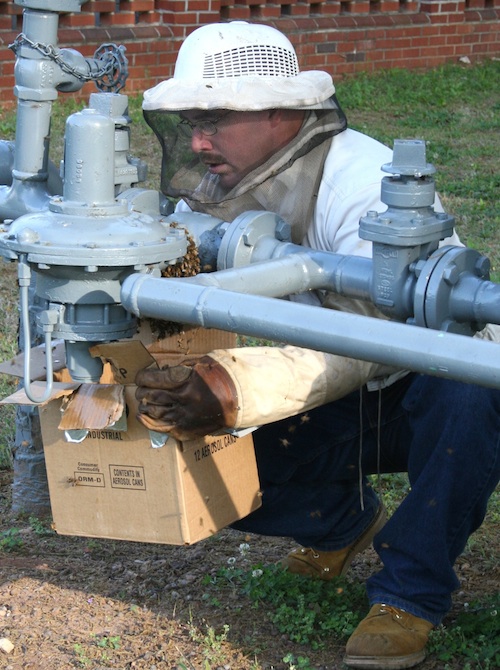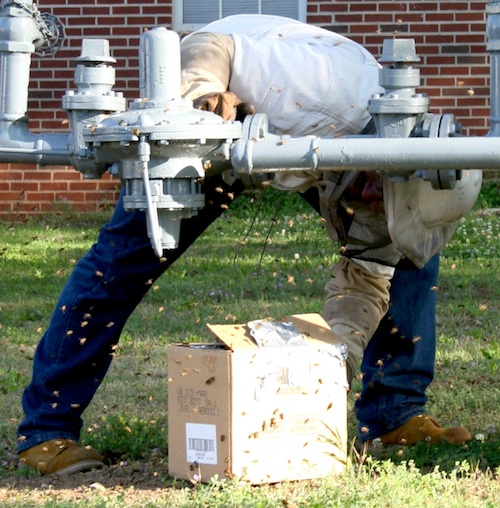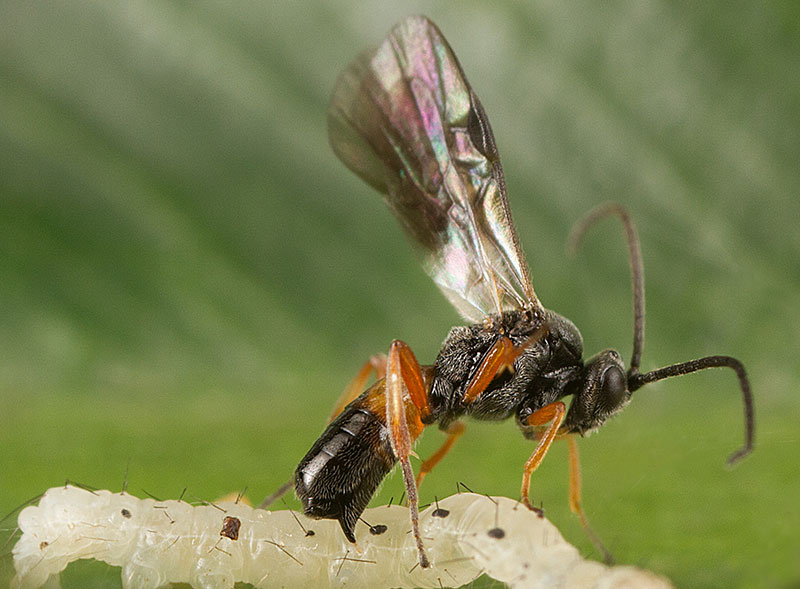Jim Quick, who will teach a beekeeping workshop in Griffin Sept. 20, has been dabbling in beekeeping for the past 32 years.
The 43-year-old Pike County resident’s interest in bees started when he tagged along behind his beekeeping grandfather.
A family tradition
“He had bees, and he used to show me and my brother how to keep bees,” Quick said. “My grandfather helped me order my first bees from Sears and Roebuck. Back then, they came in 3 or 5 pound packages -– several bees per package and a queen came with every pack.”
Beekeeping was easier “back then” because beekeepers didn’t have today’s pests and diseases to contend with, Quick said.
“You just put the bees in a box and then come back and rob the honey once or twice a year,” he said. “There’s a lot more management involved now to keep the bees going strong.”
Wiped out by pests
Quick speaks from first hand experience. In the early 1990s, he lost all his bees to varroa mites, a parasitic mite that attacks honeybees.
“I got out of it for a little bit, but my grandfather came back and asked me to get one hive for his garden,” he said. “I ended up getting two, and now I have 60 to 70 hives.”
Quick’s hives are spread out across Pike, Spalding, Lamar and Upson counties. He also rents a few bees to the Rock Ranch to pollinate their pick-your-own garden.
“It’s still a hobby for me,” he said. “It’s a very time consuming hobby, but a hobby none-the-less. And it’s a sideline business, but I don’t make a killing by no means. If I tried to pay myself for my labor, I would definitely be losing money.”
Can be a hobby or a business
Quick says the “money making part” of beekeeping comes from selling packages of bees and queens.
“You have to have a lot larger scale than I have to do that, and your bees have to be inspected,” he said.
He sells all of his Quick Bee Honey through word-of-mouth marketing. His wife Denise takes care of inventory, bookkeeping, “label making and jar washing.”
His three boys tag along with their dad, but the eldest, 11-year-old J.T., seems to have the most interest for now.
“The younger two get bored after about 15 minutes,” he said.
Using his hobby at work
A research technician in the entomology department at the University of Georgia campus in Griffin, Quick fields a lot of beekeeping questions. He also gives about 10 educational talks per year to civic and school groups.
If beekeeping piques your interest, Quick doesn’t recommend ordering bees and trying to set up hives without first taking a course or two.
“I don’t recommend anyone just buying bees and trying to get started,” he said. “People who want to have bees need to have a little experience on keeping the bees, or let a beekeeper like me help you.”
Quick will be sharing his beekeeping knowledge and fielding questions on Sept. 20 at the Agroforestry and Wildlife Field Day. The event will take place on the UGA Griffin Campus Westbrook Farm off Ellis Road in Griffin, Ga.
For more information on the field day, see the website www.caes.uga.edu/events/awfd/ or call (770) 229-3477.









